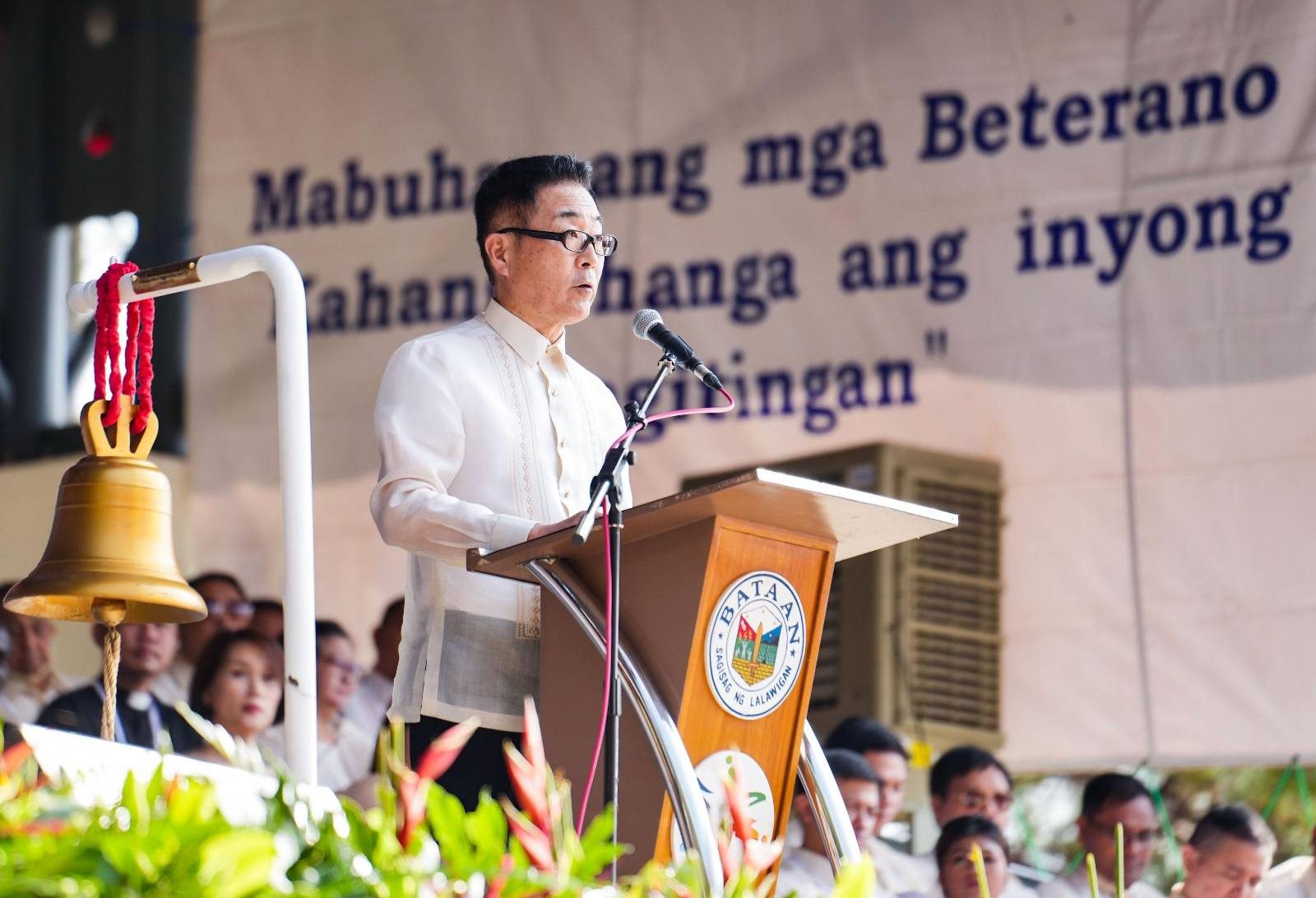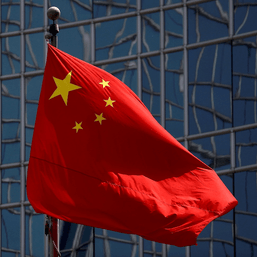SUMMARY
This is AI generated summarization, which may have errors. For context, always refer to the full article.

BATAAN, Philippines – Speaking before Filipino veterans of World War II, young boy and girl scouts, and top officials from the Philippines and the United States, Japan’s top envoy to Manila said working to “preserve peace and prosperity” in the region amid conflict in the South China Sea, Taiwan, and Ukraine, was the “best tribute” to those who died in the Battle of Bataan.
“Today, in this sacred site, we gather as close friends and like-minded partners in preserving peace and prosperity in this region for the future generations. I believe this is the best tribute we can offer to the souls of those who passed away in the fighting that took place here 81 years ago,” said Japanese Ambassador to the Philippines Koshikawa Kazuhiko.
Kazuhiko joined President Ferdinand Marcos Jr. and US embassy Chargé d’Affaires Heather Variava in commemorating the Araw ng Kagitingan on Monday, April 10, at the Mount Samat National Shrine in Pilar, Bataan.
The shrine is a tribute to the Filipinos and Americans who made a last stand in Bataan before finally surrendering to Japanese forces on April 9, 1942. While the Allied forces lost – being forced into the Bataan Death March – military experts and historians consider their months-long stand crucial in disrupting Japan’s plans, later leading to its eventual defeat.
“Eight decades after the war, Japan and the Philippines have become the closest of friends. We are deeply grateful for the forgiveness and graciousness of the Filipinos,” said Kazuhiko.
“Japan, the Philippines, and the US, once divided by war, are now mutually trusting democratic partners working towards a common goal: to preserve stability in the Indo-Pacific,” he added.
Touching on conflicts in the region, the Japanese envoy criticized “unilateral attempts to change the status quo by force, especially in the East and South China Seas,” a barely-veiled reference to China’s growing aggression in the South China Sea, which it claims almost entirely as its own. Philippine Foreign Affairs Secretary Enrique Manalo has characterized harassment from the Chinese in the South China Sea as a “daily occurence.”
“We cannot allow any military or economic power to undermine the very foundation of existing global order and plunge the world into conflict and chaos and tragedy,” said Kazuhiko.
Once again in seeming reference to neighbors in the east, Kazuhiko criticized the “repeated large-scale” military movements around Taiwan that affect not only the country and nearby Japan, but also the region.
“We sincerely hope that issues in Taiwan would be successfully resolved through dialogue, not force,” he added.
Taiwan is growing to be a flashpoint for conflict in the region. China has been insisting that the democratically-governed Taiwan is part of its territory. The US has promised to come to Taiwan’s defense should it be attacked by China. Washington has made the same promise to Manila, in the event of an attack in the South China Sea.
The Japanese ambassador also criticized Russia’s war against Ukraine and pointed out that the three countries represented in Bataan – Japan, once a bitter rival to Washington and Manila – do not want a repeat of the “tragedy of war.”
Variava, who spoke after Kazuhiko, said the US also wants a “peaceful, prosperous Indo-Pacific.”
Marcos made no mention of specific recent security issues in the region or the world in his speech, but said in a chance interview with reporters that China need not worry over new military sites where Americans may proposition their assets – so long as nobody attacks Manila. – Rappler.com
Add a comment
How does this make you feel?






![[Hindi ito Marites] Japan: From enemy to bestie](https://www.rappler.com/tachyon/2024/07/Hindi-ito-Marites-TC-ls-7.jpg?resize=257%2C257&crop=415px%2C0px%2C1080px%2C1080px)


![[Rappler’s Best] America](https://www.rappler.com/tachyon/2024/07/rapplers-best-america.jpg?resize=257%2C257&crop=458px%2C0px%2C1080px%2C1080px)







![[Just Saying] SONA 2024: Some disturbing points](https://www.rappler.com/tachyon/2024/07/TL-marcos-sona-points-july-23-2024.jpg?resize=257%2C257&crop=335px%2C0px%2C720px%2C720px)


There are no comments yet. Add your comment to start the conversation.